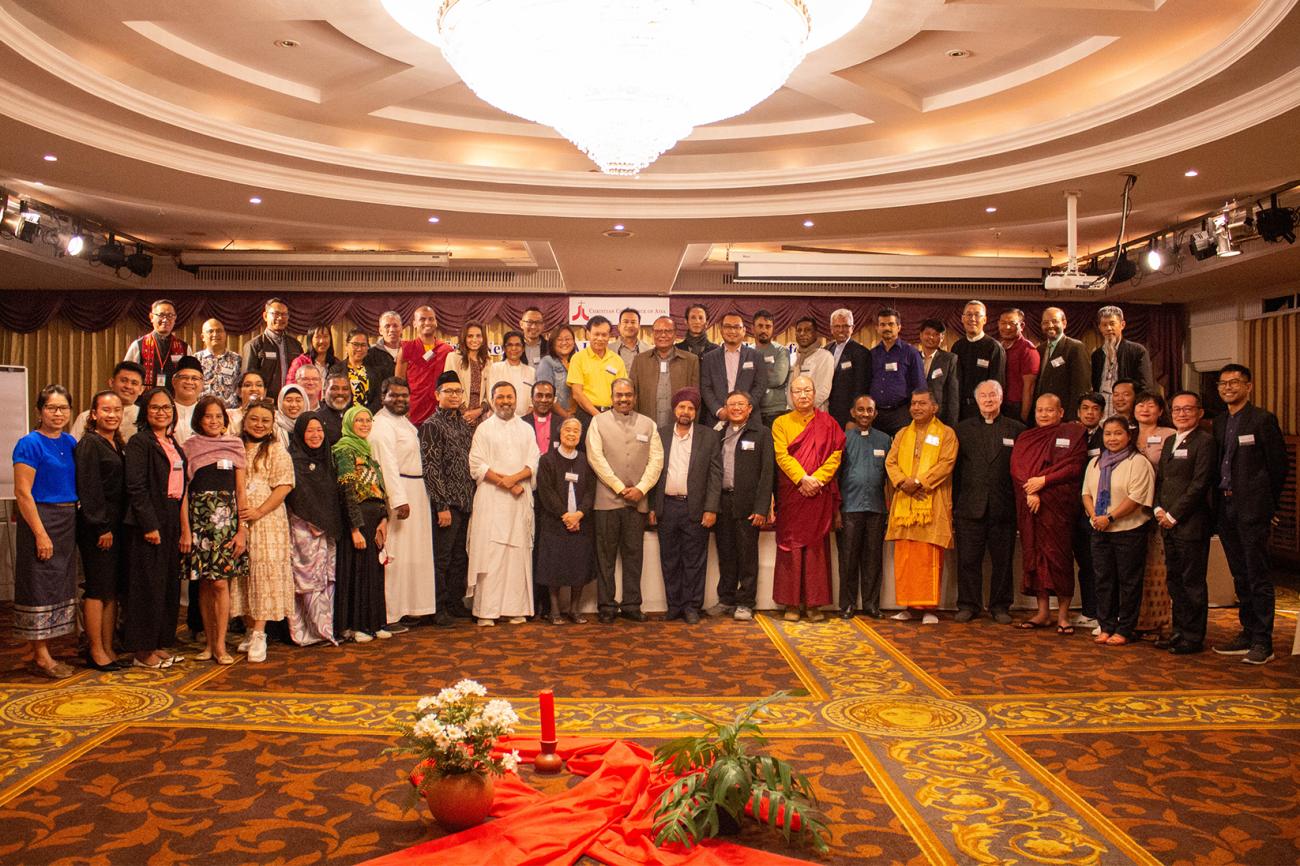Asian religious leaders affirm commitment to upholding human dignity of people living with HIV and AIDS

Participants of CCA's interfaith conference on ‘Towards Strengthening Interfaith Action Networks for Combating HIV and AIDS in Asia’ being held in Bangkok, Thailand
Bangkok, Thailand: The Asian interfaith conference on ‘Towards Strengthening Interfaith Action Networks for Combating HIV and AIDS in Asia’ (AINA) brought together leaders and representatives of different religions in Asia for a three-day summit.
Organised by the Christian Conference of Asia (CCA), the interfaith conference began on 23 January 2023 in Bangkok, Thailand, and is being attended by seventy participants from all major religions across Asia—Buddhism, Christianity, Hinduism and Islam.
Dr Mathews George Chunakara, the CCA General Secretary, opened the event. He urged Asian religious leaders to deliberate upon strategies for working together and sensitising members of their respective faith communities to address the AIDS pandemic and mobilise communities for wider advocacy.
The CCA General Secretary further stated that such a coming-together of all faith traditions was rooted in the common concern to uphold and affirm the dignity of fellow human beings.
Dr Mathews George Chunakara outlined the CCA’s work on HIV and AIDS as a priority through broader partnerships with other faith communities, civil society organisations, and intergovernmental organisations such as UN agencies.
Dr Salil Panakadan, UNAIDS Asia Pacific Regional Programme Advisor, Surapong Mitrakul, General Secretary of the Church of Christ in Thailand, and Dr Boonchuay Doojai, Chairperson of the AINA, also addressed the gathering.
Dr Salil Panakadan shared the latest statistics; out of the 38.4 million HIV and AIDS cases in the world, six million were in Asia and the Pacific. Despite the increasing cases in Asia, Dr Panakadan expressed optimism in ending the AIDS pandemic because of the strong commitment and presence of faith community leaders who were engaged in such work.
He went on to remind the participants that AIDS was not over and there was still an essential need for faith-based organisations to serve the excluded and marginalised sections of society. Such commitments could be strengthened by embracing new approaches such as virtual interventions and the promotion of self-test kits and pre-exposure prophylaxis (PrEP).
Surapong Mitrakul called for faith-based organisations to offer holistic healing that did not just cater to physical health but also addressed the deep scars and wounds inflicted by society through stigma and discrimination.
Dr Boonchuay Doojai highlighted the significance of a strong network that worked on the prevention of HIV transmission, supported the care of people living with HIV and AIDS, and developed enhanced insights into the causes of HIV-related stigma and discrimination.
The three-day international conference will address a wide range of pertinent issues related to the emerging trend of HIV and AIDS in Asia and advocacy measures specific to Asian faith communities.










